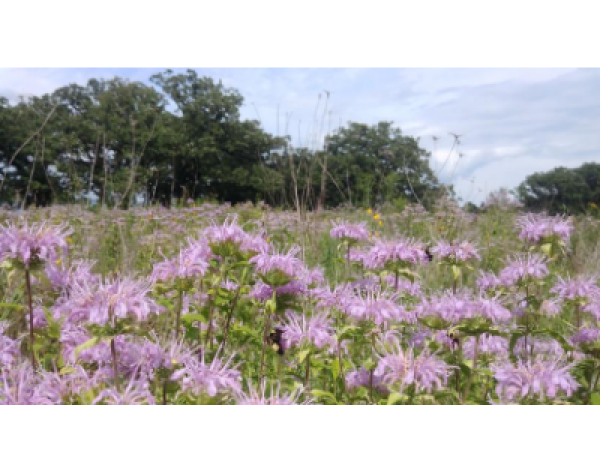
Just as Nature Intended – Land transitions to monarch habitat

Monarchs and other pollinator species add beauty, interest, and we depend on them for the work they to do to sustain our local ecosystems.
Because of this, in 2017 and 2018 TLC joined a coalition of 12 public and private land conservation organizations that applied for a grant to create or improve 975 acres of pollinator habitat through a project area called the Fox Valley Monarch Corridor.
This summer, a team from the Monarch Joint Venture visited select prairies owned by TLC. The Monarch Joint Venture’s mission is to protect monarchs and their migration by collaborating with partners to deliver habitat conservation, education and science across the United States. They visited sites that received funding from the National Fish and Wildlife Foundation’s Monarch Butterfly and Pollinators Conservation Fund to assess the impact these project sites are having on pollinator habitat and monarchs.
Several TLC sites were improved with these funds, but no project site is more visible than our newly created prairie at Wolf Oak Woods. Right in front of this preserve, between Route 120 and the Wolf Oak tree, was about three acres of an overgrown pasture that was mostly a monoculture of non-native brome grass.
This area was transitioned into a beautiful prairie that was seeded with over 60 native species of wildflowers and grasses – a true pollinator buffet! Additionally, the areas surrounding this open field used to be overrun with buckthorn and other invasive shrubs, but our hearty volunteer crew cleared the brush. After a few years of controlling weed growth and seeding native savanna plants, this beautiful landscape of stately bur oaks with a wildflower understory seamlessly rolls into the prairie ecosystem, just like nature intended!
It will take a few months to receive any data from the survey, but they crew did report seeing lots of caterpillars and eggs out at the site!
Wolf Oak Woods is located at 9100 IL Route 120, just outside of Woodstock.
About the National Fish and Wildlife Foundation
Chartered by Congress in 1984, the National Fish and Wildlife Foundation (NFWF) protects and restores the nation’s fish, wildlife, plants and habitats. Working with federal, corporate and individual partners, NFWF has funded more than 5,000 organizations and generated a total conservation impact of $6.1 billion. Learn more at www.nfwf.org